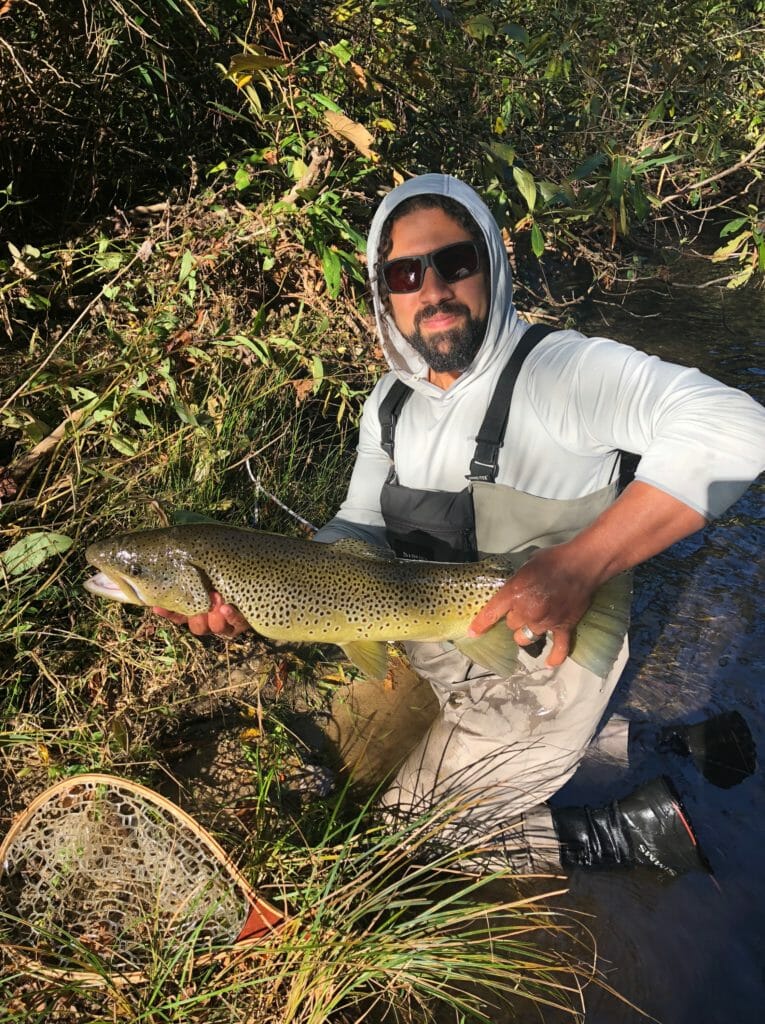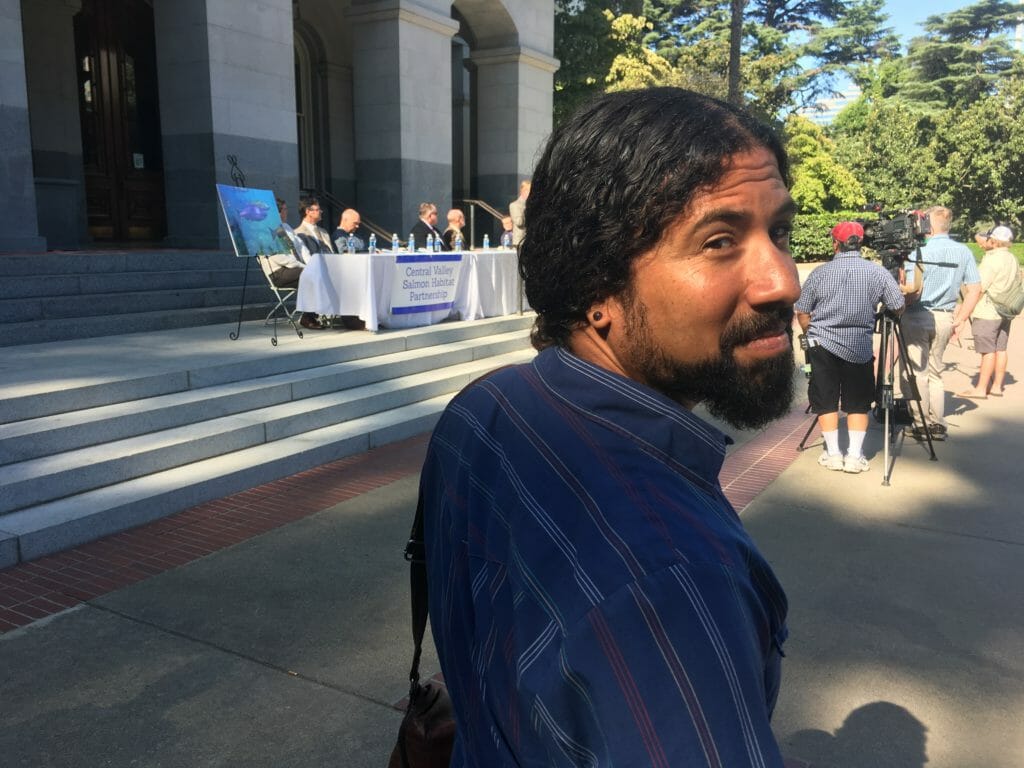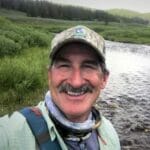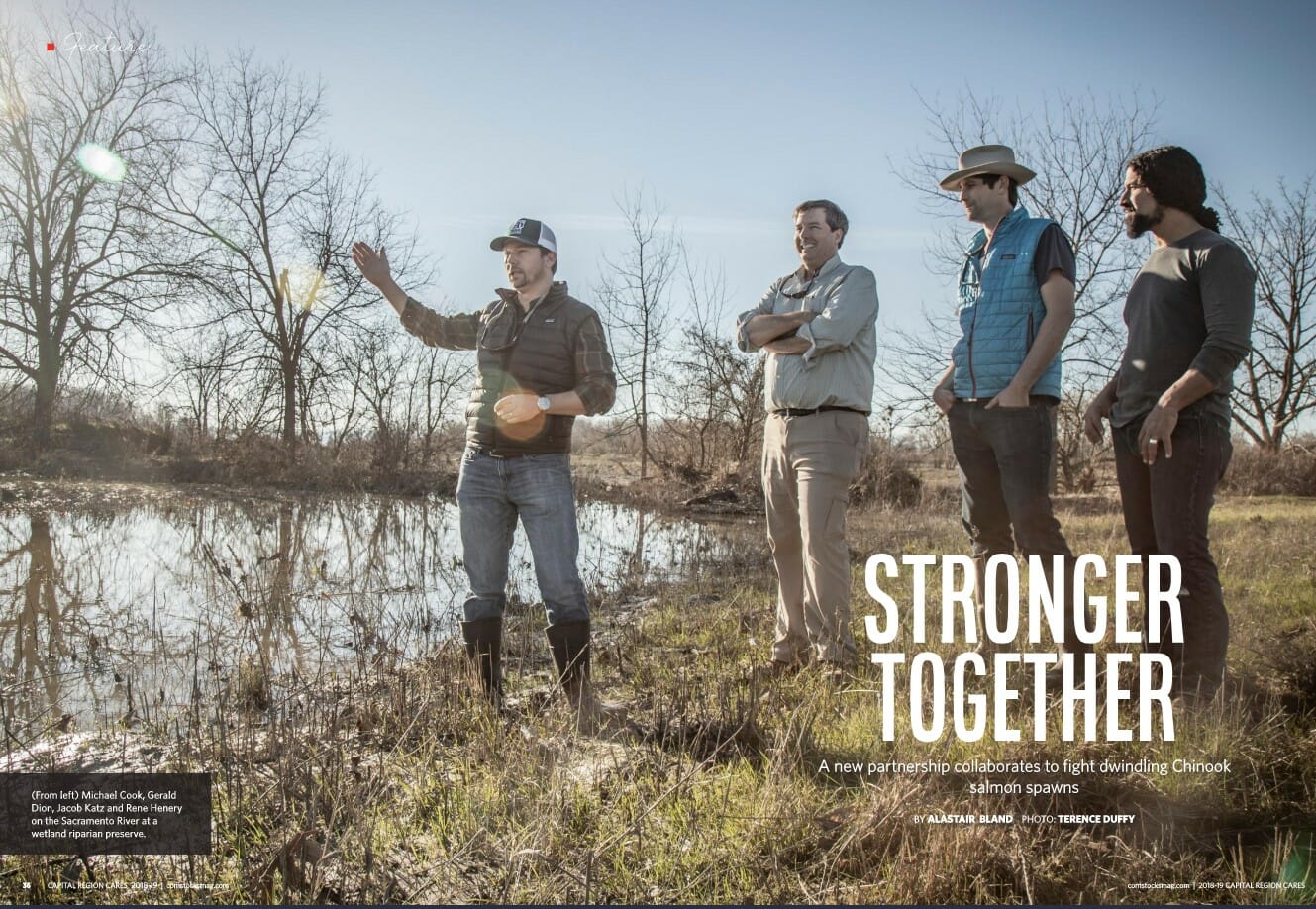Dr. Rene Henery leads a small team of Trout Unlimited program staff who work on improving and restoring habitat, passage and flows for imperiled Central Valley salmon and steelhead. This effort has taken promising strides over the past several years toward a collaborative, adaptively-managed approach to rebuilding wild runs of native fish and the fisheries these runs support.
Two years ago, Henery helped found the Central Valley Salmon Habitat Partnership (CVSHP), a groundbreaking collaboration between resource agencies, conservation groups, fishing advocates and water suppliers to help reverse the decline of Central Valley salmon and steelhead. The Partnership employs a cooperative, science-based approach to establish habitat objectives and an implementation plan to achieve them. By working across disciplines, members of the Partnership can provide expertise on a broad range of issues, from ecological science, farm practices, and fisheries management, to securing permits and funding for habitat restoration.
Recently, the annual Capital Region’s Guide to Philanthropy and Nonprofits, published by Comstock’s magazine, included a feature article on the progress of the CVSHP—Henery’s thoughts in the piece on why the Partnership is needed illuminate a fundamental challenge: “We spend so much time negotiating nature and waterways in windowless conference rooms in Sacramento,” Henery says. “Things might get done faster, more efficiently if meetings were held on the riverbank, where the sometimes abstract dynamics between fish, flows, food and floodplains come more easily to life.”

Henery’s interest in recovering salmon and steelhead runs in the Central Valley is grounded as much in his concern for the welfare of the region’s human residents as for its native fishes. Henery has written frequently about the concept of “reconciliation” in species conservation and how water connects people across cultural and economic boundaries.
One of Henery’s more recent expositions on this subject is featured in California Water Stories: Lived, First-Person Narratives and Recommendations for the California Water Action Plan. This compilation of essays from participants in the inaugural cohort of the Water Action Network represents voices from “leaders focused on the future of water management in our state who value engaging all stakeholders and bridging differences to ensure sustainable and equitable water management in California…tasked with developing recommendations for the Governor and the California Water Action Plan.”
Henery’s article in this collection of essays, “Putting the Pieces Back Together: The Challenge and Opportunity of Reconciliation,” can be read here.

In addition, Henery just wrote an essay on diversity for the scientific community in Mountain Views, Chronicles of the Consortium for Integrated Climate Research in Western Mountains, published by the USDA Forest Service. The May 2019 issue focuses on the theme of Celebrating Diversity in our Science— Henery’s essay is included in the Voices in the Wind section (p. 57), and offers a response to the editorial question: “What recommendations and actions can you suggest that could help realize a future for our [mountain science] community that is truly inclusive?”
We know now that the piecemeal solutions we have pursued historically to water supply and water use challenges in the western U.S. are unlikely to succeed in realizing outcomes that help both people and the environment over the long term. “Improving California’s [water] capacity and functionality requires a common vision and the investment of the time and energy necessary to reconnect estranged parts and repair relationships,” says Henery in the Water Stories essay. “In order to be successful, the tasks of reconciliation and repair must proceed simultaneously at multiple scales, between and among individuals and communities, within the legal and regulatory context, and physically on the landscape.”
TU’s California Science Director Rene Henery, PhD, is at the forefront of current efforts to improve habitat and rebuild native salmon and steelhead populations in the Sacramento and San Joaquin River systems while minimizing impacts to water supply and giving voice to a broad spectrum of affected peoples through cooperative partnerships with farmers, resource agencies, fishing advocates and other stakeholders.
Cover photo: Terence Duffy/Capital Region Cares.



